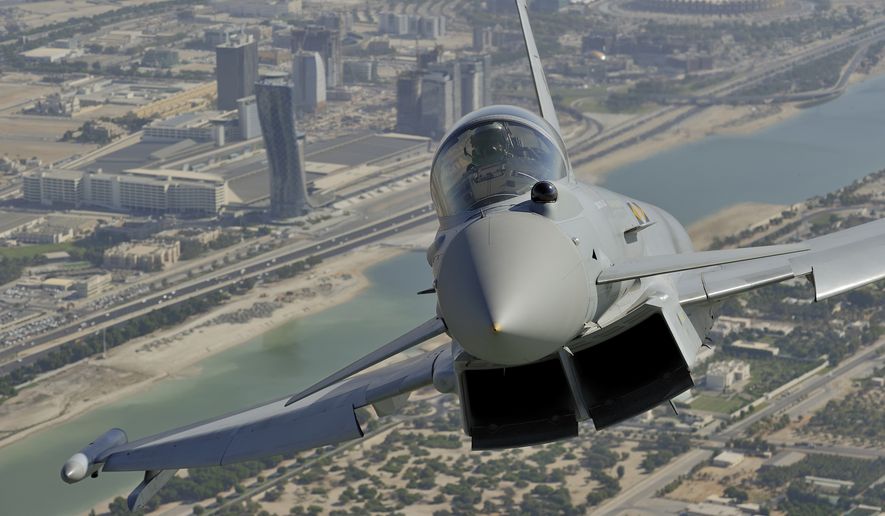Large-scale Russian maneuvers in European airspace forced NATO member states to scramble jets Wednesday.
Eight Russian aircraft were tracked by NATO radars flying over the North Sea, Baltic Sea, the Atlantic Ocean and the Black Sea. Four Tu-95 Bear H strategic bombers and four Il-78 tanker aircraft did not file flight plans, maintain radio contact with civilian air traffic controllers or use on-board transponders, NATO reported.
NATO Allied Command Operations said on its website Wednesday that Russia’s actions posed a “a potential risk to civil aviation as civilian air traffic control cannot detect these aircraft.”
Jets from the Royal Norwegian Air Force, Typhoon fighters from the United Kingdom and F-16s from the Portuguese Air Force all had to be scrambled during the course of the Russian maneuvers, NATO reported.
“What’s going on is a radical escalation of aggressive Russian muscle flexing and posturing designed to demonstrate that Russia is no longer a defeated power of the Cold War era,” Ariel Cohen, who heads the Center for Energy, National Resources and Geopolitics at the Institute for the Analysis of Global Security in Washington, told The Washington Times Thursday.
“The more we retreat, the more we are encouraging Russia to behave in a more aggressive way,” Mr. Cohen said.
SEE ALSO: Vladimir Putin emboldened by weak U.S. response to Russian aggression
On Tuesday, NATO radars tracked seven Russian aircraft flying in international airspace that had to be intercepted by German Typhoon fighter jets, allied fighters from Denmark, and fighters from Finland and Sweden, NATO reported.
Finland and Sweden are not members states of NATO.
“Over the last 24 hours, we have seen increasingly adventuresome, unusual activity by the Russian military in international air space,” Congressman Mike Turner, Chairman of U.S. Delegation to the NATO parliamentary assembly and senior House Armed Service Committee member, said Wednesday. “Russia’s escalating provocative acts of intimidation and threats of destabilization are cause for concern — not just for our European allies — but for the entire NATO alliance,” the Ohio Republican added.
• Douglas Ernst can be reached at dernst@washingtontimes.com.




Please read our comment policy before commenting.